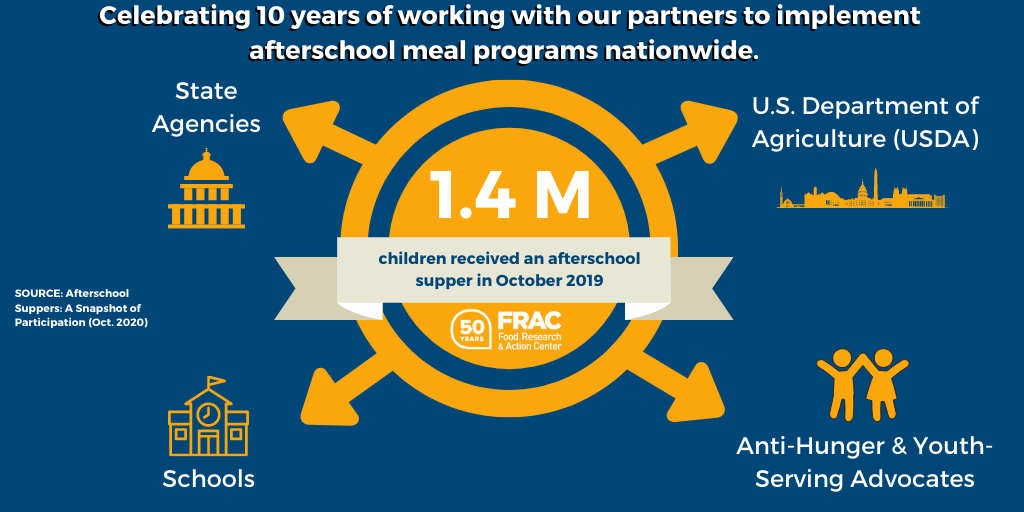December 18, 2020

Ten years ago this week, the Healthy, Hunger-Free Kids Act of 2010 (HHFKA) was signed into law. This landmark legislation reauthorized the child nutrition programs and made significant investments in the child nutrition programs to expand access and improve nutrition quality. FRAC led advocacy efforts and worked closely with our local, state, and national partners to enact a strong child nutrition reauthorization.
Some of the wins included:
- Afterschool suppers and snacks Before 2010, afterschool suppers were only available in 14 states and the District of Columbia. This program continues to grow each year, serving over 1.4 million children on an average day in October 2019, an increase of 6.5 percent from October 2018.
- Community Eligibility. HHFKA created the Community Eligibility Provision, which allows high-poverty schools to offer breakfast and lunch at no charge to all students while eliminating the traditional school meals application process. Nearly 31,000 schools—about one in three schools—offered school meals at no charge to 14.9 million children during the 2019-2020 school year.
- Increased access to school meals. HHFKA increased the number of low-income children automatically certified for free school meals (known as direct certification). It set benchmarks for Supplemental Nutrition Assistance Program (SNAP) direct certification and established Medicaid direct certification pilots.
- Improved Nutrition Quality. The HHFKA authorized USDA to update the nutrition standards for school meals and provided an additional 7 cent lunch reimbursement (to be adjusted for inflation) to schools that meet the new standards. Issued in January 2012, the standards increased the amount of fruits and vegetables served, emphasized whole grain-rich foods, required only low fat and nonfat milk, limited calories, and reduced saturated fat and sodium. Ongoing attempts in 2018 and today to roll back these standards continue, despite the fact that schools have implemented the new standards, parents support them, and they are getting healthier meals to students.
As COVID-19 continues to negatively impact communities, driving up rates of unemployment and food insecurity, it is important that we maintain and build upon the critical gains made through the HHFKA.


